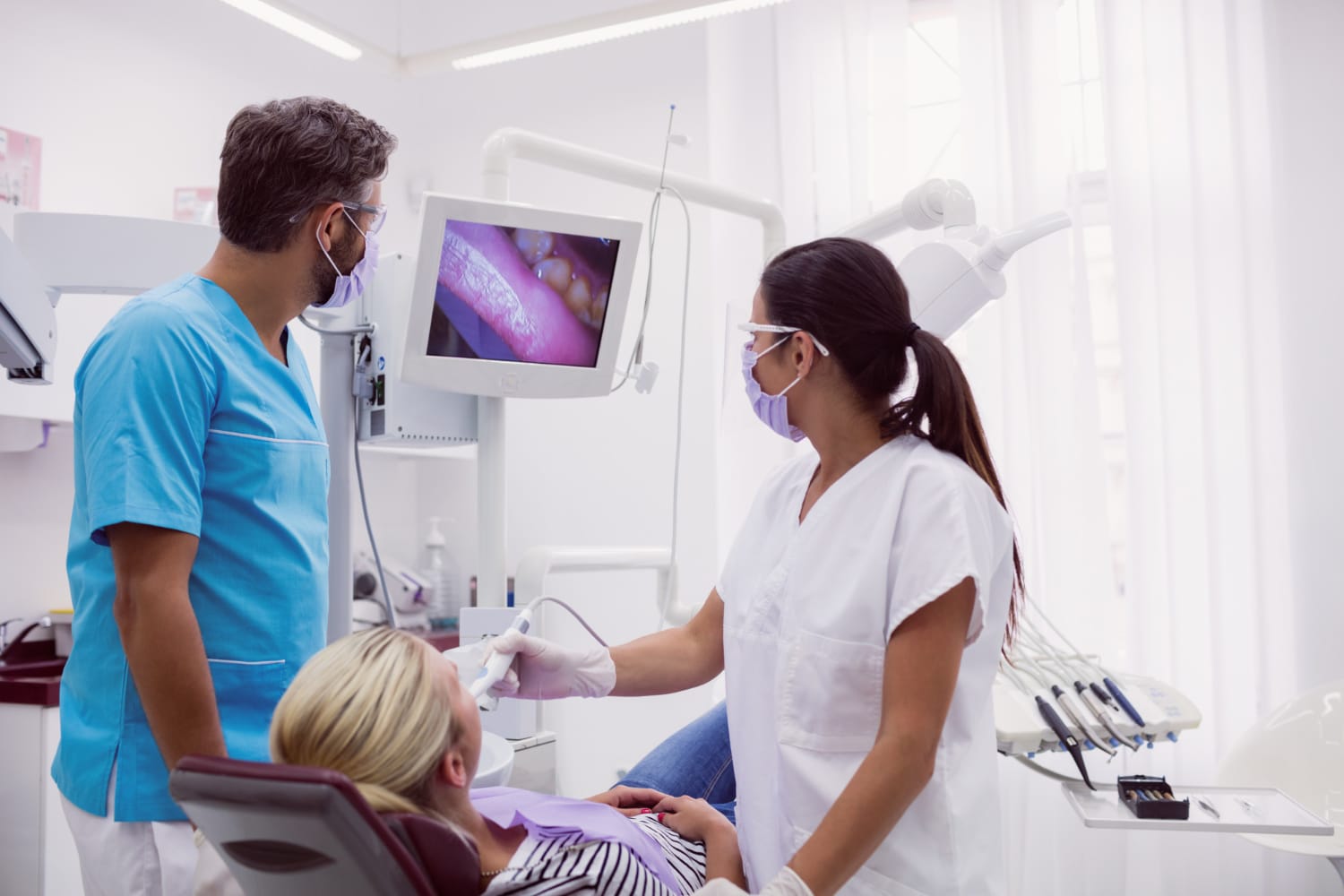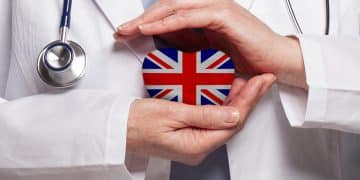Everything you need to know about NHS dental care in the UK

NHS dental care provides essential oral health services to millions of people across the UK.
Whether you’re seeking a routine check-up, dealing with dental issues, or considering more complex treatments, the National Health Service (NHS) offers a range of dental services designed to cater for a variety of needs.
Understanding what NHS dental care covers, who is entitled to it, and how to access it can help you make informed decisions about your dental health.
This comprehensive guide will walk you through the basics of NHS dental care, including the services available, eligibility for free treatments, and the costs involved.
For many, NHS dental care is an accessible and cost-effective way to maintain oral health, but knowing how it works can ensure you get the most from these services.
What services are available through NHS dental care?
NHS dental care provides a wide range of services aimed at maintaining and improving oral health.
These services include routine check-ups, preventative care, emergency treatment, and more complex procedures.
The aim of NHS dental services is to ensure that everyone, regardless of financial status, has access to essential dental treatments. Here’s an overview of the main services available:
- Routine Check-ups: Regular dental exams are essential for preventing oral diseases. During a routine check-up, the dentist will examine your teeth, gums, and mouth for signs of any issues, such as cavities, gum disease, or oral cancer. They may also provide advice on brushing, flossing, and maintaining good oral hygiene.
- Preventative Care: This includes dental cleanings, fluoride treatments, and advice on how to improve your oral hygiene. The dentist may also provide sealants or fillings to prevent decay and maintain the health of your teeth.
- Restorative Procedures: If you have damaged or decayed teeth, NHS dentists can offer treatments like fillings, crowns, bridges, or dentures. These are designed to restore the function and appearance of your teeth.
- Emergency Treatment: If you experience severe dental pain, infection, or injury, NHS dental care can provide emergency services to alleviate pain and prevent further complications.
- Orthodontic Treatment: The NHS provides orthodontic treatments like braces for patients who have specific dental health issues, such as crooked teeth or bite problems. However, this treatment is generally reserved for those under 18, and not all types of orthodontic treatments are available.
For further details about the services available, you can visit NHS Dental Services Guide.
NHS dental care for special needs
NHS dental care is designed to cater for a variety of needs, including those of vulnerable or special needs groups.
People with disabilities, mental health conditions, or learning disabilities may have additional challenges when it comes to accessing dental care.
In these cases, NHS dental services provide tailored support, ensuring that individuals receive the necessary care in an appropriate setting.
This may include having a carer present during appointments, making reasonable adjustments to treatment plans, or offering sedation or general anesthesia for those who experience anxiety or difficulties with dental procedures.
Who is entitled to free NHS dental treatment?
One of the key benefits of NHS dental care is that it provides free treatment for eligible individuals.
However, there are specific criteria for who qualifies for free NHS dental treatment, and it’s important to understand these so you can know whether you need to pay for your care.
Free NHS dental care is available to:
- Children and young people under 18, or under 19 if they are still in full-time education
- Pregnant women and women who have had a baby within the last 12 months
- People receiving certain benefits, such as Universal Credit, Income Support, and Jobseeker’s Allowance (depending on income level)
- Adults with low income or who are on specific benefits (based on means-tested criteria)
If you are unsure whether you qualify for free treatment, you can check your eligibility on the official NHS Eligibility page.

What happens when you visit the dentist?
Visiting an NHS dentist for a check-up or treatment is a straightforward process. Here’s what you can expect when you visit the dentist:
- Initial Consultation: Upon arrival, you will be asked to fill out a form with basic personal details and medical history. The dentist will review your dental health, ask about any concerns, and discuss the treatment options available. If you’re a new patient, this consultation will also help establish your oral health needs.
- Treatment Plan: Based on your consultation, the dentist will develop a treatment plan tailored to your needs. This plan will include the procedures required, the estimated cost (if applicable), and the expected timeline for treatment.
- Procedures: Depending on the treatment plan, you may undergo services like fillings, extractions, or cleanings. For more complex treatments, such as crowns or orthodontics, the dentist may refer you to a specialist.
- Payment: While many NHS dental services are free for eligible individuals, others are subject to a charge. NHS dental care in England is divided into three pricing bands, which determine the cost based on the complexity of the treatment required.
You can learn more about visiting the dentist and the procedures involved on the official NHS Dental Visit page.
NHS dental charges
While many NHS dental services are free, others are subject to a charge. The cost of treatment is usually divided into three bands, which are based on the complexity of the treatment needed:
These charges apply regardless of age, but there are exemptions and reductions for certain groups, including children, students, and those on low incomes. For full details on the cost structure, visit the NHS Dental Charges page.
How to pay for NHS dental care
For patients who do not qualify for free dental care, NHS dental treatment is generally paid for at the time of the appointment.
Payment can be made through several methods, including by card, cash, or other forms of electronic payment.
If you are receiving multiple treatments, the cost will reflect the band in which your treatment falls.
If you’re eligible for help with costs, you may be able to claim the NHS Low Income Scheme to help with dental charges.
This scheme offers a range of benefits based on your financial situation. Additionally, some NHS dental practices may offer payment plans or financing options for more complex treatments.
How to find an NHS dentist
Finding an NHS dentist is relatively easy, but availability can vary by location. Many NHS dentists have waiting lists, especially in areas where there is high demand.
To find an NHS dentist in your area, you can use the NHS service finder tool available on the NHS website.
In some cases, especially in rural areas, it may be challenging to find an NHS dentist accepting new patients.
If you’re having trouble finding an NHS dentist, you can also contact your local NHS authority for assistance or look for private dental care as an alternative.
Frequently Asked Questions (FAQ)
- What is NHS dental care?
NHS dental care provides essential oral healthcare services, including check-ups, treatments, and surgeries, through the public healthcare system. While some services are free, others require payment based on the complexity of the treatment.
- Who is entitled to free NHS dental care?
Certain individuals, such as children, pregnant women, and those on qualifying benefits, may be entitled to free NHS dental care. For full eligibility details, visit the NHS Eligibility page.
- What are the NHS dental charges?
The cost of NHS dental care is divided into three bands based on the treatment required. The bands range from basic examinations to more complex procedures, with prices starting from £23.80.
- Can I choose my NHS dentist?
Yes, you can choose your NHS dentist, but availability may vary. Use the NHS website to search for an NHS dentist near you.
- What should I do if I have a dental emergency?
If you need emergency dental care, contact your NHS dentist or call NHS 111 for advice. Emergency treatment is available for urgent issues like severe pain, swelling, or accidents.

NHS dental care is an essential service that ensures everyone in the UK has access to the dental treatments they need to maintain good oral health.
Whether you are looking for a routine check-up, emergency treatment, or more specialized care, the NHS offers a wide range of affordable services.
By understanding what is covered, who is eligible for free care, and how to access services, you can ensure you make the most of NHS dental care.
Remember to regularly visit your dentist, maintain good oral hygiene, and seek treatment as necessary to keep your smile healthy.





